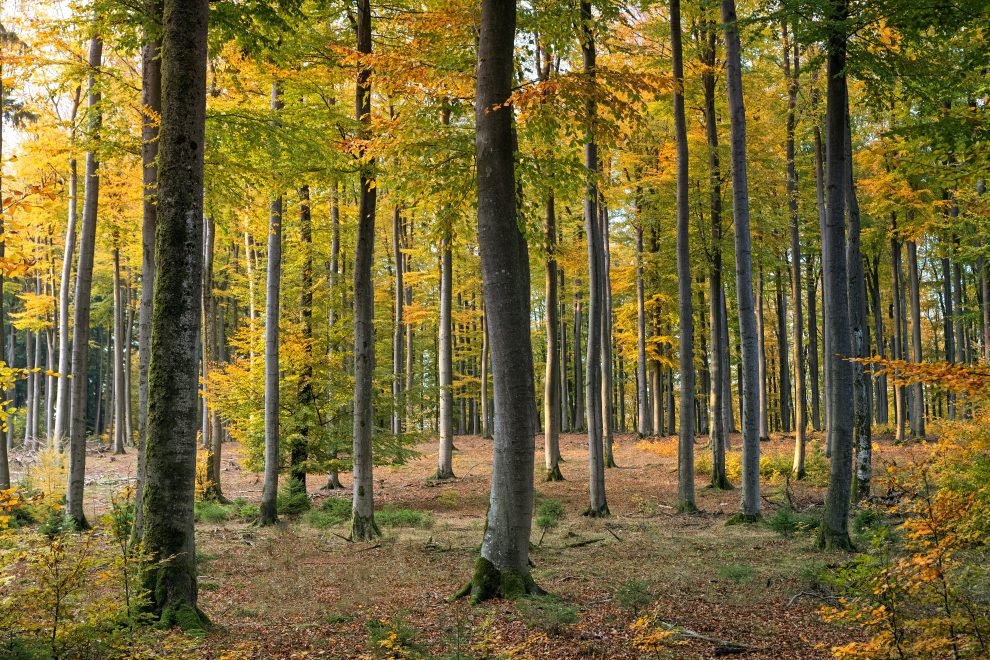Mother Earth can’t take much more of her human offspring’s hell-raising.
Scientists tell us that, by their count, the universe is somewhere between 13 and 14 billion years old, with the earth coming in at somewhere between 5 and 6 billion. According to traditional Jewish reckoning, on the other hand, creation is celebrating a much more modest 5,771 years this September 9.
That date is Rosh Hashanah, the Jewish New Year, which rolls around every autumn, just as the earth is yielding crops bountiful enough to fill every table. Jewish tradition has it that when God created the heavens and the earth, they came into being in their fullness, each ripe fruit and ear of grain a sign of the divine goodness literally pushing out at the end of every branch and stalk.
Genesis tells two different stories of this wonder. The first is a tale of goodness built upon goodness, the fullness of which is the divine likeness borne by humankind. The second recounts a more complicated beginning, one that ends in a tragic fall. Yet both give pride of place to women and men: Though part of nature, humankind is charged with governing what God has made by virtue of the divine image they bear.
At least that’s how the story goes, though the myth is contradicted over and over by the facts on the ground, or in the case of the oil-sullied Gulf of Mexico, under the sea. We may be forced to judge the ancient writers of Genesis overly optimistic when it comes to humanity’s alleged capacity for the divine gifts of knowledge and wisdom. A modern biblical writer would probably be forced to recount how the Creator saved his most spectacular blunder for last, creating the stupidest, most shortsighted fools to ever walk on two legs.
I can think of no other way to describe a species that has, in the mere 150 years since the Industrial Revolution, so recklessly trashed its environment, fouling both land and water to such extremes that creation’s other inhabitants, innocent bystanders to our bipedal menace, must either flee or die. What God created as a biosphere, humanity has made an anthroposphere–all about us.
It is bad enough that the endless human quest to mine and process the earth’s guts has resulted in the obscene catastrophe that is still washing up on our shores. What is worse is that neither this devastation nor scores of others have provoked any meaningful soul-searching about our future as a species or our deleterious effect on God’s handiwork.
There is only one word for this–sin–and it’s the same one first described in Creation Story No. 2: That sin had little to do with fruit or snakes or sex; it was rather an attempt to be, in the words of the tempting serpent, “like God,” a refusal to be rooted in the soil from which we were drawn.
Our first parents tried to escape their created nature, and their children down these many generations continue to commit the same sin against nature over and over. And as we refuse to admit that we belong to–and are not above or apart from or better than–the world around us, we continue to make an open sewer of the only home we have.
We know well that the remedy for sin is conversion, and the conversion this sin demands is that we remember what we are: earth people, clay vessels made alive by divine breath. We must begin by putting our bare feet on whatever soil we can find, to dig our toes in among the grasses and roots and crawling things, to run our hands over rough bark and through clear water, to love creation as God does, and so discover again our first and primary vocation as vicars of the Creator.
But it is not enough to repent; we must also atone for what we have done and what we are still doing. That atonement requires an abrupt change in how we go about our lives–particularly how we create and use energy–but it cannot stop there. It must include reparation–literal repairs–for the earth scarred so terribly by our wickedness. Perhaps our penance may restore the oneness God intended in the beginning, in which human beings have our proper place as members of the created order.
It is serendipitous that the celebration of Rosh Hashanah leads directly to the most solemn day on the Jewish calendar: Yom Kippur, the Day of Atonement. In the ten “Days of Awe” between the festivals, religious Jews seek to identify and atone for their failures in the preceding year, in the hope of securing divine favor for the new one.
Our Mother Earth, who is looking all of her 5,771 years thanks to her human children, would surely appreciate such effort on her behalf. It is her birthday, after all.
This article appeared in the September 2010 issue of U.S. Catholic (Vol. 75, No. 9, page 8).
Image: Johannes Plenio from Pexels














Add comment